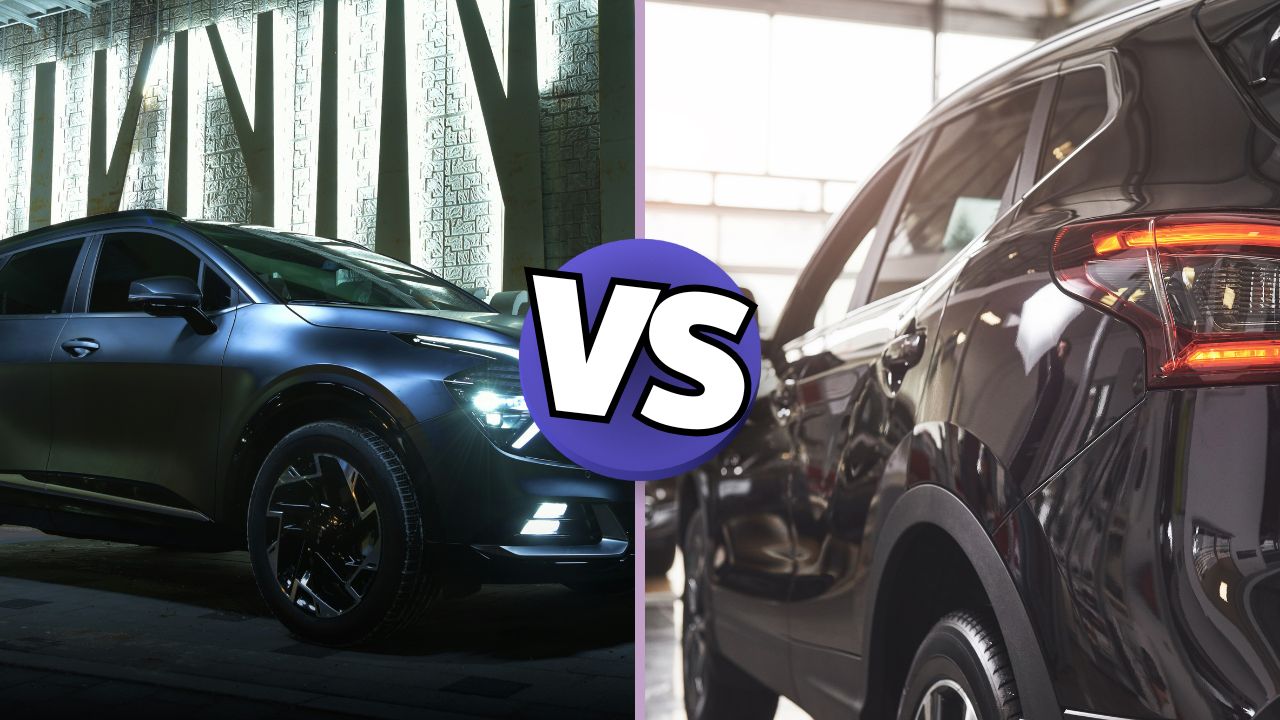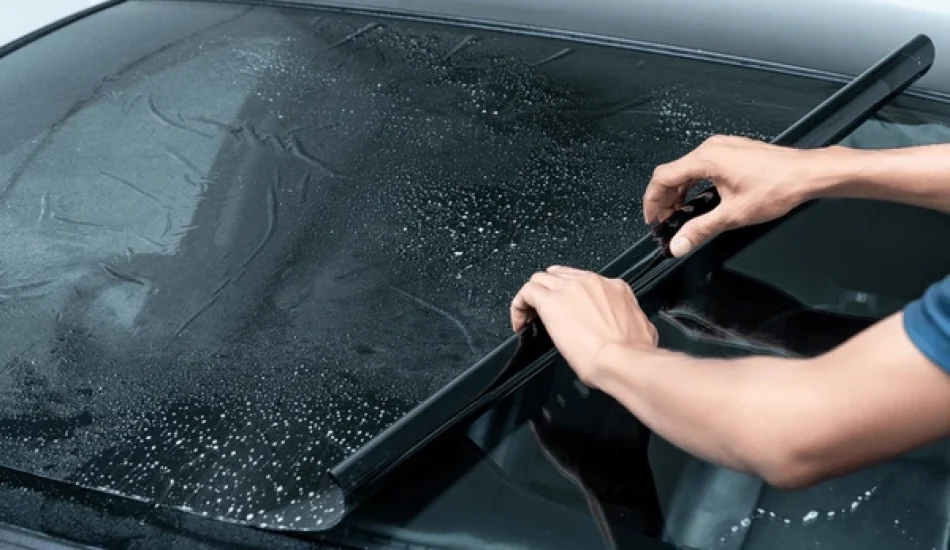
Kia Sportage vs Hyundai Tucson: When choosing a compact SUV, two names often come up as top contenders: the Kia Sportage and the Hyundai Tucson. Both vehicles, manufactured by South Korean automotive giants under the Hyundai Motor Group, offer style, reliability, and cutting-edge features. However, each has unique qualities that make them appeal to different types of drivers.
In this in-depth comparison, we’ll analyze the Kia Sportage and Hyundai Tucson across various parameters, including design, performance, interior features, technology, safety, pricing, and more, to help you decide which SUV suits your lifestyle and preferences.
Overview of Kia Sportage: The Kia Sportage is a compact SUV that has gained popularity for its bold design, comfortable interior, and impressive technology. With a reputation for reliability and competitive pricing, it is a strong contender in the crowded SUV market.
Key Highlights:
- Engine Options: Multiple powertrains, including hybrid options in recent models.
- Interior Quality: Premium materials and a focus on comfort.
- Technology: Advanced infotainment and safety features.
Overview of Hyundai Tucson: The Hyundai Tucson is another standout in the compact SUV segment, known for its sleek design, spacious interior, and efficient performance. With a strong emphasis on value and innovation, the Tucson remains a favorite among families and individuals alike.
Key Highlights:
- Design: Modern and eye-catching exterior styling.
- Efficiency: Fuel-efficient engines and hybrid options.
- Practicality: Ample cargo space and thoughtful features.
Exterior Design: Both the Kia Sportage and Hyundai Tucson have undergone significant design upgrades in recent years, offering modern and distinctive looks. Kia Sportage Design The Sportage features a bold and sporty design with sharp angles and a unique front fascia. Its signature “tiger nose” grille, LED headlights, and aggressive stance make it stand out. Recent models have embraced a more futuristic aesthetic, with sleek lines and eye-catching details.
Hyundai Tucson Design: The Tucson boasts a sophisticated and elegant design, characterized by its cascading grille and geometric lighting patterns.It has a more refined appearance, appealing to those who prefer a subtle yet modern look. The bold character lines and sculpted sides add a touch of dynamism.
Winner: Kia Sportage for its daring and sporty look, though the Tucson appeals to those who prefer a sleek and refined aesthetic.
Interior Comfort and Space
Both SUVs excel in interior quality and comfort, offering thoughtful designs and premium materials.
Kia Sportage Interior
Spacious cabin with seating for up to five passengers.
High-quality materials with an emphasis on driver-centric design.
Slightly smaller cargo space compared to the Tucson but still practical for most needs.
Heated and ventilated seats are available in higher trims.
Hyundai Tucson Interior
Spacious and airy cabin with plenty of legroom and headroom for passengers.
Minimalist dashboard design with a focus on ergonomics.
Larger cargo capacity than the Sportage, making it ideal for families or road trips.
Premium trims offer luxurious touches like leather upholstery and panoramic sunroofs.
Winner: Hyundai Tucson for its superior cargo space and versatile layout.
Performance and Engine Options
Both the Kia Sportage and Hyundai Tucson offer a variety of powertrains, including hybrid and plug-in hybrid options.
Kia Sportage Performance
Base Engine: 2.5-liter inline-4 with 187 horsepower and 178 lb-ft of torque.
Hybrid Option: Combines a 1.6-liter turbocharged engine with an electric motor, producing 226 horsepower.
Driving Experience: Offers a balance of power and comfort, with responsive handling.
Towing Capacity: Up to 2,500 pounds, depending on configuration.
Hyundai Tucson Performance
Base Engine: 2.5-liter inline-4 with 187 horsepower and 178 lb-ft of torque (similar to the Sportage).
Hybrid Option: Delivers 226 horsepower with impressive fuel efficiency.
Driving Experience: Prioritizes a smooth and quiet ride, ideal for daily commutes.
Towing Capacity: Matches the Sportage at 2,500 pounds.
Winner: Tie. Both vehicles offer comparable performance, with hybrid options delivering excellent efficiency and power.
Technology and Infotainment
Modern SUVs must excel in technology, and both models deliver in this department.
Kia Sportage Technology
Standard 8-inch touchscreen with available 12.3-inch display in higher trims.
Apple CarPlay and Android Auto come standard.
Available wireless charging pad, premium audio systems, and navigation.
Advanced driver-assistance systems like adaptive cruise control and lane-keeping assist.
Hyundai Tucson Technology
Standard 8-inch touchscreen with available 10.25-inch display.
Apple CarPlay and Android Auto included, though wireless functionality depends on trim level.
Innovative features like digital key and remote parking assist.
Comprehensive suite of driver-assistance features, including blind-spot monitoring and highway driving assist.
Winner: Hyundai Tucson for its innovative features like digital key and remote parking assist.
Safety Features
Both SUVs prioritize safety and come equipped with extensive safety technology.
Kia Sportage Safety
Standard safety features include forward collision warning, automatic emergency braking, and lane departure warning.
Higher trims add features like blind-spot monitoring and surround-view cameras.
Earned high safety ratings from the NHTSA and IIHS.
Hyundai Tucson Safety
Standard safety features include forward collision avoidance, driver attention warning, and lane-keeping assist.
Advanced features like blind-spot collision-avoidance assist and smart cruise control are available.
Also received top safety ratings from the NHTSA and IIHS.
Winner: Tie. Both vehicles offer robust safety features and excellent ratings.
Fuel Efficiency
Fuel efficiency is a key factor for many SUV buyers, and hybrid options enhance the appeal of both models.
Kia Sportage Fuel Efficiency
Gasoline models: Approximately 25 MPG city and 32 MPG highway.
Hybrid models: Up to 39 MPG combined.
Hyundai Tucson Fuel Efficiency
Gasoline models: Similar at 26 MPG city and 33 MPG highway.
Hybrid models: Slightly more efficient with up to 38 MPG combined.
Winner: Tie, though the Hyundai Tucson hybrid edges slightly ahead in combined fuel efficiency.
Pricing and Value
Affordability and value are significant factors for most buyers.
Kia Sportage Pricing
Starting Price: Around $26,000 for base models.
Higher trims and hybrid models can exceed $36,000.
Offers excellent value with its extensive warranty (10-year/100,000-mile powertrain warranty).
Hyundai Tucson Pricing
Starting Price: Similar at around $26,000 for base models.
Higher trims and hybrid options also exceed $36,000.
Backed by Hyundai’s strong warranty program (10-year/100,000-mile powertrain warranty).
Winner: Tie. Both models provide competitive pricing and excellent warranty coverage.
Kia Sportage vs Hyundai Tucson Pros and Cons
Kia Sportage Pros
- Bold and sporty design.
- Excellent warranty.
- Balanced performance.
Kia Sportage Cons
- Slightly less cargo space.
Hyundai Tucson Pros
- Sleek and sophisticated design.
- Spacious interior and larger cargo capacity.
- Innovative tech features.
Hyundai Tucson Cons
- Slightly less sporty driving experience.
Final Verdict
Choosing between the Kia Sportage vs Hyundai Tucson depends on your preferences and priorities:
Choose the Kia Sportage if you value bold styling, sporty performance, and a driver-focused design.
Choose the Hyundai Tucson if you prioritize spacious interiors, advanced technology, and a refined driving experience.
Both SUVs are excellent choices, offering value, reliability, and modern features. Test-driving both models is the best way to determine which one feels right for you.


